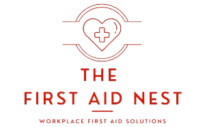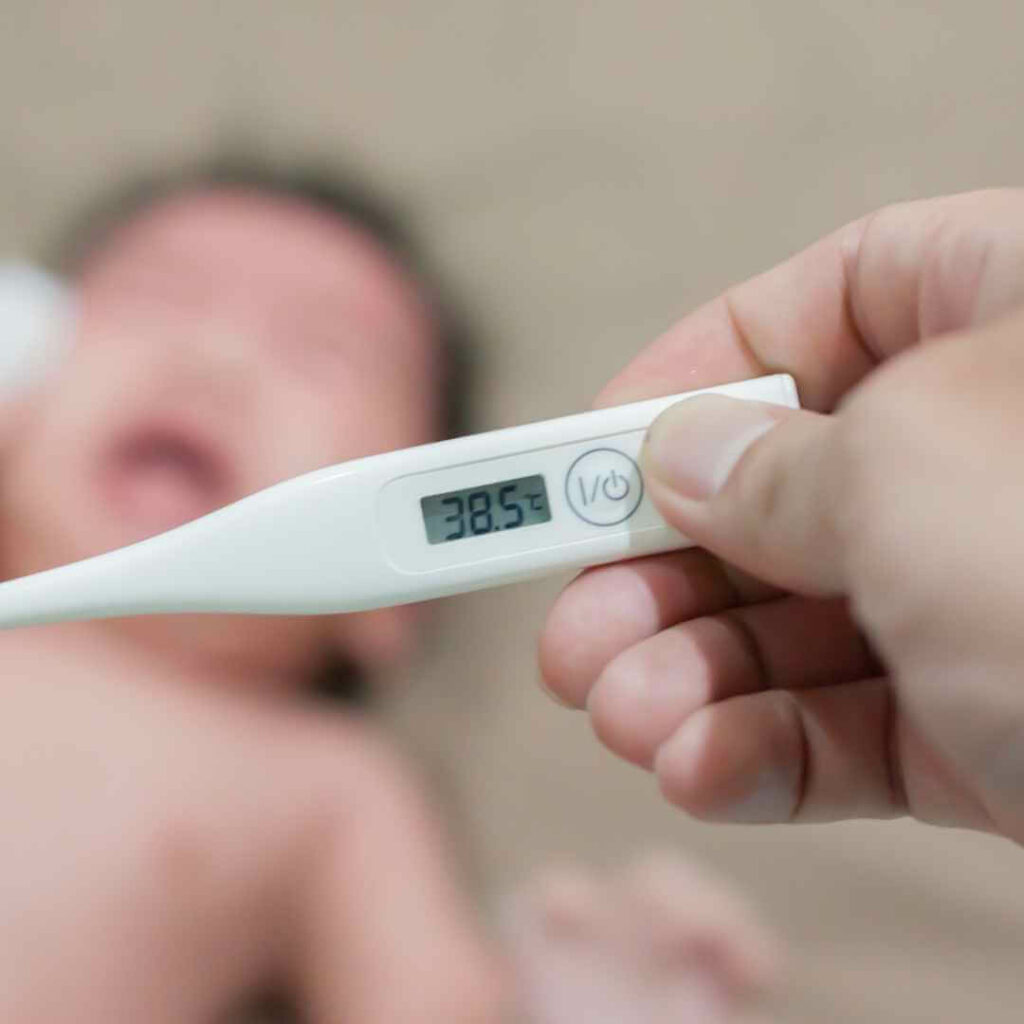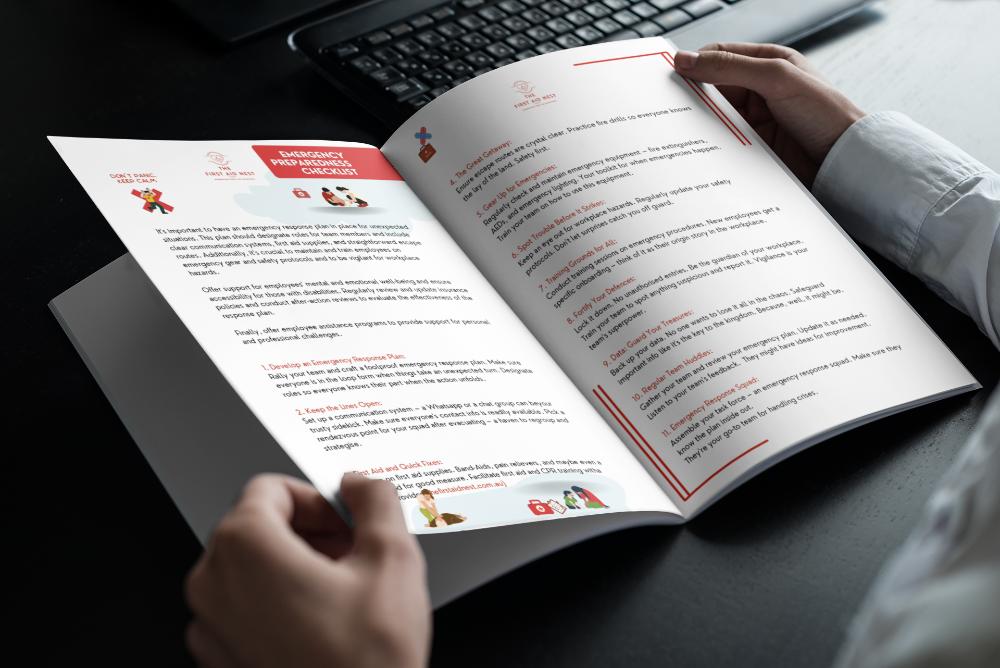Child Fever – Symptoms and Treatment
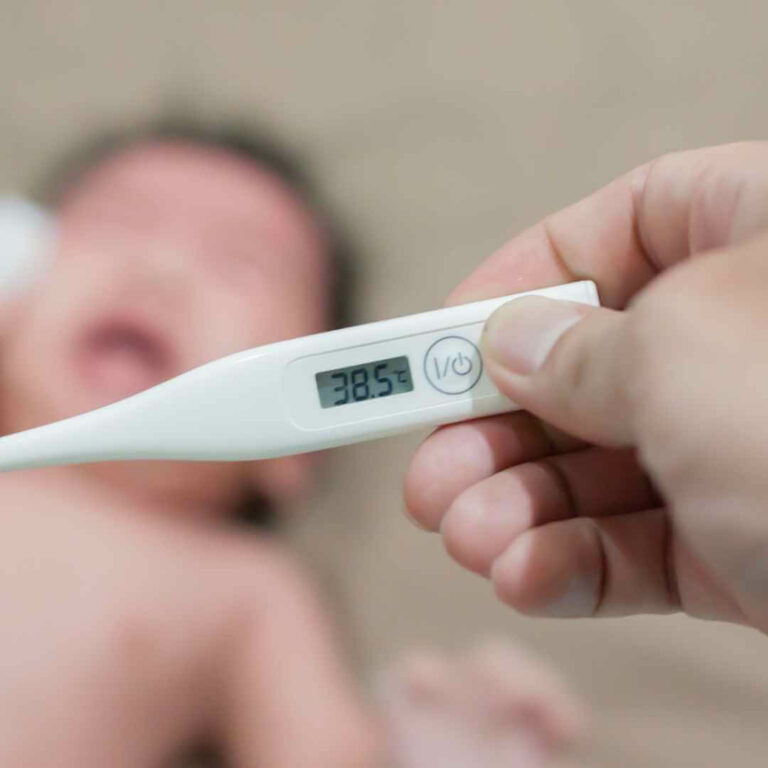
In this post we are going to bust some myths about fever.
We had a big class yesterday with some lovely first time mums and these questions kept coming up, and it seems fever can be quite misunderstood.
So let’s start with the numbers!
Fever of 39 degrees?
The fever or the number on the thermometer, doesn’t correlate to the severity of the illness.
A child can have a fever of 38, or they can have a fever of 39 degrees, but to us it’s still just a fever. It does not mean that the one with a higher fever is more sick. It’s just a fever that is showing us that there is something more going on.
If your child has a fever, do you go to hospital?
A fever means there is a source of illness or infection
What we’re more concerned with as healthcare professionals is what’s causing that fever.
The body is very clever and a fever is there to protect your child. When they have a virus or bacterial infection, their body releases fighter cells, which tells the hypothalamus in the brain to heat up because a virus or a bacterial infection can’t multiply in that kind of hot environment.
What fever is dangerous?
A fever is not dangerous in most children. The child’s brain is not going to overhead, which is a major worry to a lot of parents, that only would ever happen in a very rare occasion where there is a previous brain injury and the brain isn’t working properly and the hypothalamus can’t regulate the temperature.
When is a fever too high for a child?
A fever can sometimes trigger a febrile convulsion in a young child, but we talk more about that in our febrile convulsion post over here.
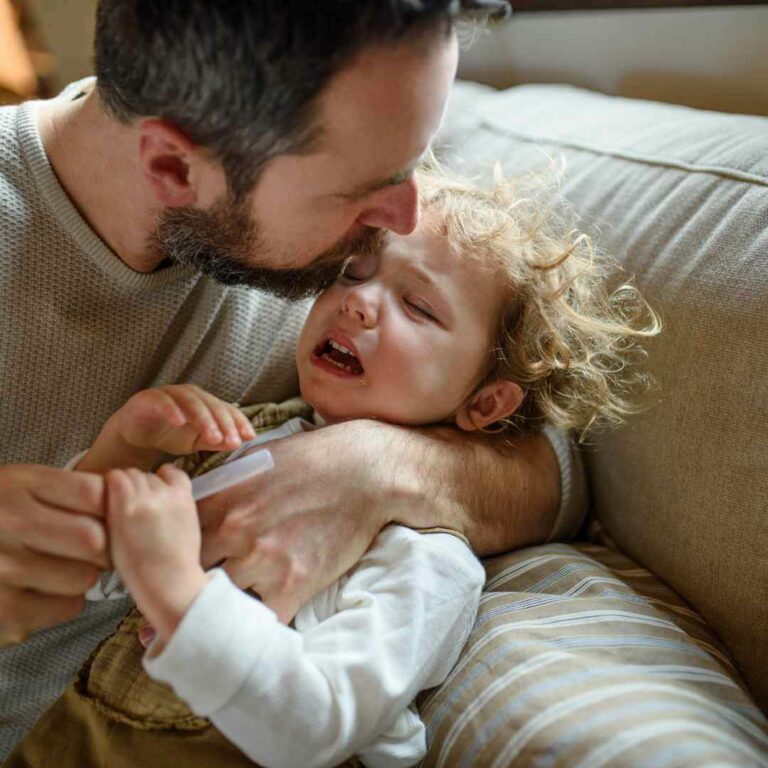
Infant first aid for fever
When we give paracetamol or ibuprofen, we bring down that temperature, which yes, makes a child feel better, but actually it’s going against what the body’s trying to do.
So we don’t say not to give it if your child is in pain or very distressed, but if they are ok, quite comfortable and not too miserable, then maybe we don’t need to give the paracetamol or ibuprofen.
We want you to be aware of that because what we may be doing is prolonging the illness by bringing down a fever that the body is trying to put there to protect us.
We tend to lose our appetite when we have a fever, because it’s an awful lot of work to digest food, it takes a lot of energy and a lot of calories.
Our immune system is already working really hard to get us better and trying to fend off all these nasty bugs and heating the body up, so by feeding a child that doesn’t really want to eat, we’re just making the digestive system get involved and taking all that energy away from the immune system.
However, they always need to drink. That is non-negotiable. There needs to be fluids.
If they can tolerate milk, then that’s fine, but what we really need to make sure is that those babies, especially the breastfed ones, have regular wet nappies.
Make sure their nappies are nice and full. If their nappies start to dry up, we need to get that baby seen by a doctor as soon as possible.
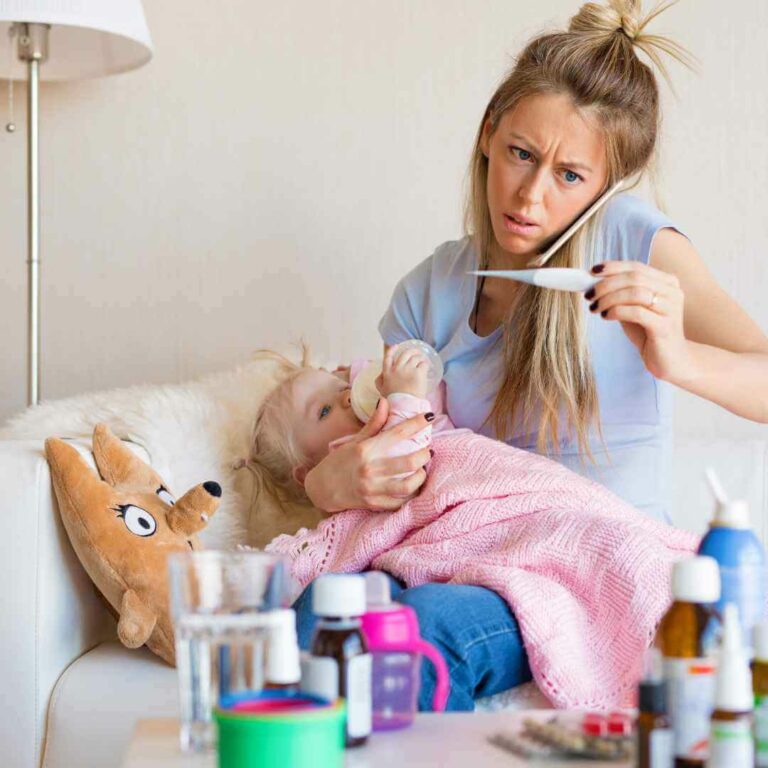
It is a myth that babies get a fever only at night
Lastly, it is important to know, if your baby is under three months old and they have a temperature of 38 or above, they need to be seen straight away that same day. A baby that young does not have a very mature immune system and can get sick very quickly, so medical attention needs to be given very quickly.
We hope you enjoyed this! Our mission is to help parents cut through the clutter of anxiety and worry when it comes to your child’s health and wellbeing.
We want you to trust yourself, know that you have all the tools in your nest to keep your child safe and well, so you can stop googling, and coming away more confused than when you started, you have landed in our well feathered nest and we’ve got your back, every step of the way!
Want more? We’ve got you covered…
Our Baby First Aid Courses
Our baby first aid courses are available in person in your home and online. We run classes in your home with groups of 2, 4 or up to 10 in Sydney & Melbourne and you can book in 3 easy steps!
- Pick your class
- Follow the prompts to purchase
- We will contact you within 24 hours to lock in your date of choice
Our First Aid Certificate Courses
We run most of the popular first aid courses Australia wide. HLTAID011 Provide First Aid, HLTAID009 Provide CPR, HLTAID012 Provide First Aid in an Education & Care Setting, RAMOAP (anaphylaxis), Mental Health first aid and CPR/LVR to name a few.
Book your public spot online or contact us if you have a group of 5+ people for onsite training.
Here are some other resources you may enjoy!
FREE GUIDE: Your Virtual Baby First Aid Kit
FREE GUIDE: Introducing Common Allergy Foods & Allergic Reactions
FREE Workplace Emergency Preparedness Plan: Grab this at the bottom of every page!
Follow for baby & child first aid and allergy info and tips on Instagram, TikTok & Facebook all @thenestcpr
